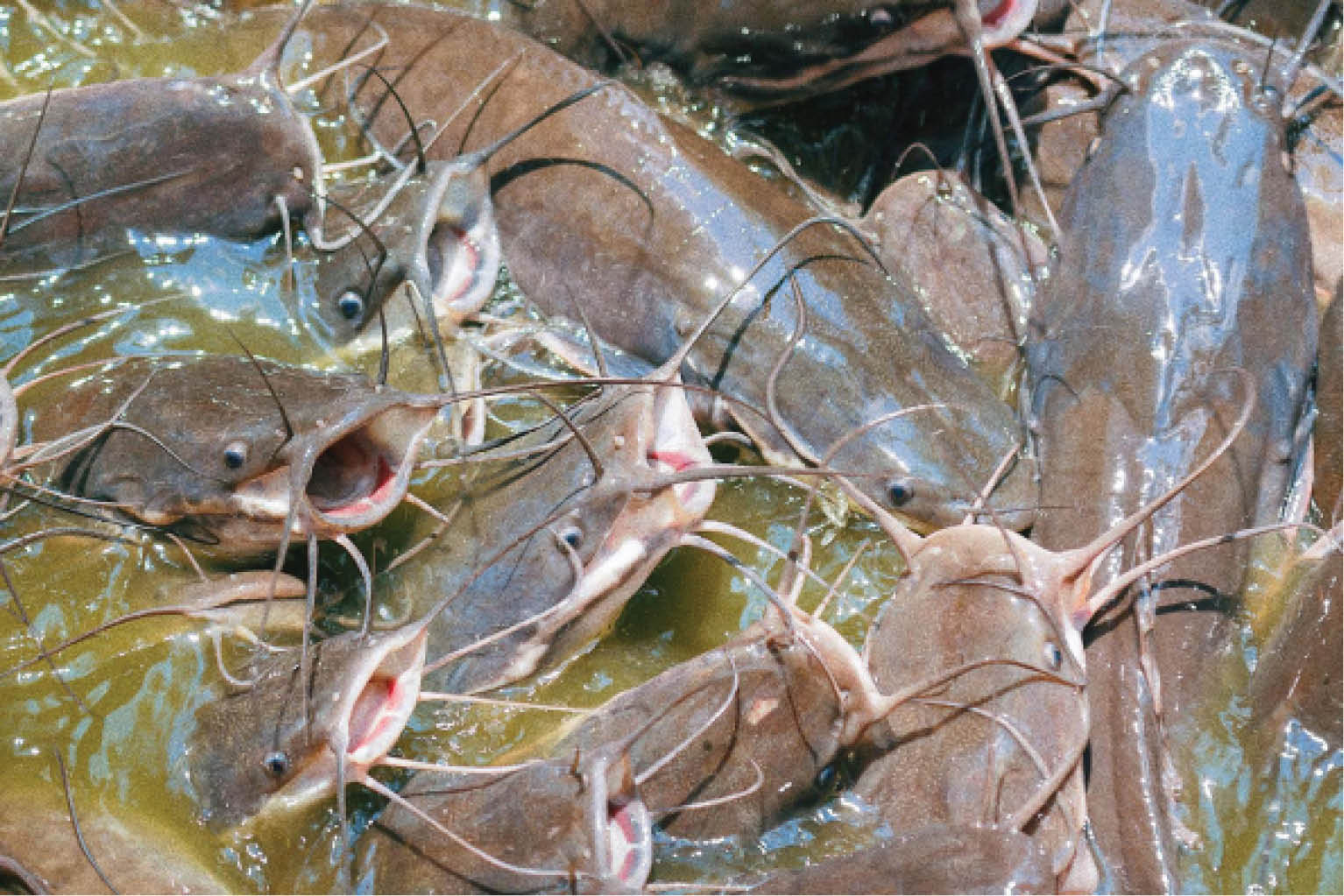Why fish farming is collapsing in Jigawa
Fish farming is at the verge of collapse in Jigawa State following high cost of feed, lack of market and absence of government intervention. Fish farmers that have decided to remain in the business despite the unfriendly nature of fish farming in the state had to look inward for alternative to the costly fish feed […]

Fish farming is at the verge of collapse in Jigawa State following high cost of feed, lack of market and absence of government intervention.
Fish farmers that have decided to remain in the business despite the unfriendly nature of fish farming in the state had to look inward for alternative to the costly fish feed by producing feed that is locally formulated.
High cost of feed, among other challenges associated with fish farming in the state, has made the business less lucrative.
The advent of the use of onion seedling as fish feed is, however, saving fish farmers from totally losing out in the business in the state.
The farmers, who mixed onion seedling with dried fish to produce fish feed, now spend less in feeding their stock compared to when they relied on buying the conventional feed.
However, the high demand for onion seedling by fish famers has caused it to be scarce and its price to skyrocket.
Following the high demand for it, onion seedling is increasingly becoming difficult to source. A measure now cost as high as N30,000.
But despite the high price, it is still relatively cheaper for fish farmers to go for onion feed than company feed.
Apart from being relatively fair in term of cost, onion feed saves fish farmers from spending on medicaments as onion, a component of the locally formulated feed, gives some natural prevention to fish against water-borne fish diseases.
A bag of onion seedling could be used in producing 10 bags of the locally formulated feed after being mixed with dried fish.
The cost of a bag of company fish feed is twice that of onion formulated feed. A measure of the company feed cost as much as N1,200 while a measure of onion feed cost as low as N500 to N600.
In the last two years, there were over 20 commercial size fish ponds in the state which produced as much as N10 million fish in one to two weeks.
The ponds which were owned by big-time fish farmers, are now ghosts of their former selves with only three now barely functional.
Many of the big time farmers have redirected their capital to other ventures, leading to the collapse of fish business.
Meanwhile, the significant drop in the number of big time fish farmers as well as the introduction of onion locally formulated feed has forced many, if not all of the conventional fish feed retailers to close shop as demand dropped drastically.
In the past, there were over 10 fish feed retail shops in Hadejia zone, which is the hub of fish farming in the state but at present, only one person is said as still remaining in the business.
A fish farmer, Shafi’u Mohammed Bako, told Daily Trust on Sunday that despite the high cost of onion seedling as component for formulating local fish feed, farmers preferred it.
Despite its cost, farmers consider the onion feed as more cost effective compared to that supplied by the companies, because among others, onion gives prevention to the fish against some diseases and saves the farmers extra expenditure on medicare.
“Onion seedlings are most often very difficult to get hence, very expensive. But even at that it is relatively cheaper compared to the companies’ feed.
“A measure of onion seedling costs about N30,000 but even at that it is cheaper because a bag could be mixed with 10 bags of dried fish and that means 10 bags of feed. The price of 10 bags of company feed is twice that of onion feed.
“A measure of company fish feed is N1,200 while a measure of locally formulated onion feed is N600.
“In terms of quality, onion feed is the best as half a measure can feed a fish to maturity while one needs a full measure of company feed to feed a fish to maturity.
“The onion feed is deposited in a pond in form of mass upon which the fishes will be feeding and that takes days before it finishes unlike the company feed which float and does not last long,” he further explained.
Also speaking to this reporter, Dr. Haruna Abubakar, a company fish feed retailer in Hadejia, said the advent of onion fish feed, absence of market and lack of support from government are adversely affecting fish farming in the state.
He said he used to take delivery of three tons of company fish feed and all bought in an average of one ton per week, but that now a ton could last as long as a month.
When the business of company fish feed was booming, there were many people in the business but following drop in patronage, many have closed shop, Dr. Abubakar said, adding that he is now the only person who sells fish feed in Hadejia.
“The use of onion feed has affected our market. In the past I used to sell two to three tons of commercial fish feed in a month but now hardly I can sell a ton.
“The market started to nosedive about two years ago. Fish farming business crumbled in the state following high cost of feed, lack of market and as most of the farmers also complain, absence of government support as was enjoyed in the past,” he said.
